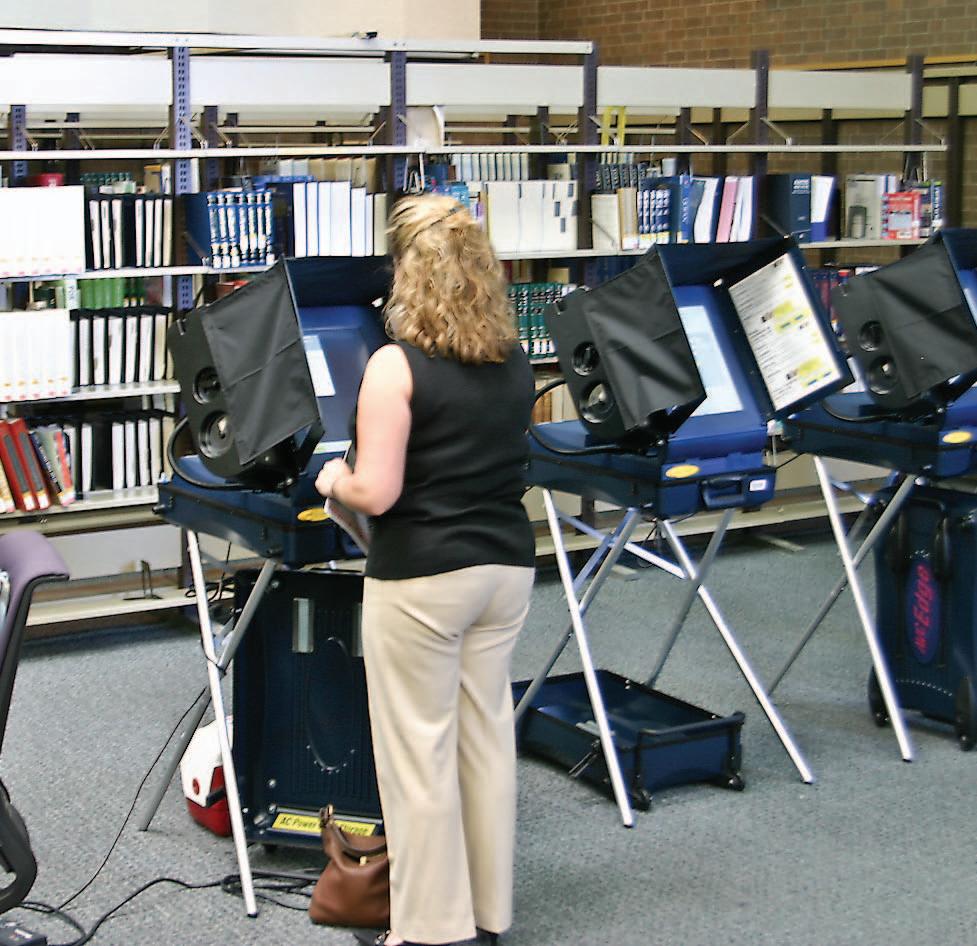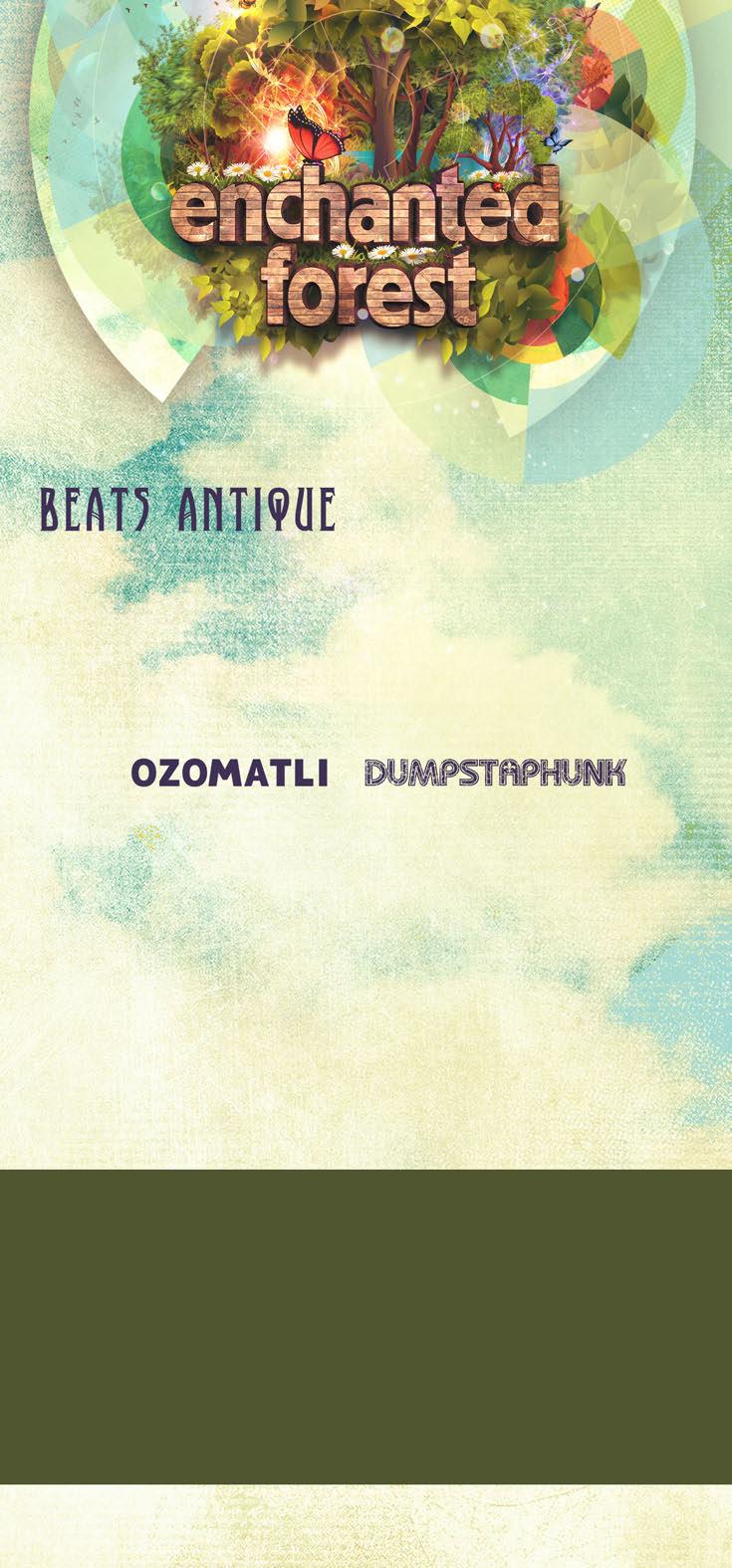
10 minute read
NEwS
from May 24, 2018
Petition drive ends
The Nevada Supreme Court has ruled that an antisanctuary cities political group was too cute in the way it worded its initiative petition and must start over. The petition, filed by the Prevent Sanctuary Cities Political Action Committee does not actually use the term “sanctuary city” except in the title, and there it could be read to mean that the initiative petition calls for blocking a pro-sanctuary cities effort: “PREVENT SANCTUARY CITIES INITIATIVE” (the all-caps are in the original).
Advertisement
A lawsuit challenged the petition on grounds that its language is misleading and that it violates Nevada’s constitutional requirement that legislative measures deal with only a single topic. The court denied the challenge to the single-subject rule, but upheld it on the misleading verbiage.
“As Tu Casa urges, and the district court found, the title ‘Prevent Sanctuary Cities’ is a catch-all that is subject to shifting and imprecise meanings, not a neutral, descriptive phrase. … Together, the title and the description of effect must be sufficient to allow the voter who is asked to sign … to understand the initiative being proposed and its effect if adopted. Here, the potentially misleading title, combined with the initiative’s generality and the deficient description of effect, do not accomplish that end.”
The case has been returned to the district court level for new language, assuming the PAC decides to continue with the petition campaign. All signatures gathered so far are void.
Frank Mcculloch 1920-2018
It is unfortunate that University of Nevada alum Frank McCulloch at his death is likely to be remembered for two things he would rather have forgotten.
In 1971, billionaire Howard Hughes called McCulloch and told him an alleged Hughes autobiography was a fraud. McCulloch did not believe him and, after reading the book in manuscript, he attested to the authenticity of the book, which was later exposed as a hoax.
In 1983, when McCulloch was executive editor of the Sacramento Bee, the Bee and two sister newspapers published an article reporting suspected skimming at a Carson City’s casino when it was owned by U.S. Sen. Paul Laxalt and his family. Laxalt sued. McCulloch complicated things when he went beyond the reporting and told the Bee ombudsman flatly that “the skimming took place,” which the story had not alleged. The Bee settled the case rather than take it to trial.
Those two blunders, however, do not—or should not—obscure a lifetime of great reporting and editing. One of the reasons McCulloch was called by the publisher of the Hughes book was that he had covered Hughes like a blanket after other reporters had given up trying to contact the reclusive billionaire.
McCulloch, a Fernley native, reported from Vietnam for Time and Life, drawing criticism from President Johnson, and was managing editor of the Los Angeles Times and San Francisco Examiner.
In retirement, he arranged a posthumous Pulitzer award for reporter Edward Kennedy, who had been fired by the Associated Press in 1945 for accurately reporting the German surrender before others.
A more detailed obituary can be found on our Newsview blog.
—Dennis Myers
Making things easier for voters, as with motor voter and early voting, has not usually increased turnout.
PHOTO/DENNIS MYERS
Early voting’s downside
Journalism is part of the problem
in 2006, early voting began on oct. 21. The Oct. 13 incident involving Republican nominee for governor Jim Gibbons, a cocktail waitress, and allegations of assault had already happened—but was largely ignored in Northern media. One Reno television newsman trivialized its importance. By the time Northern reporters started giving the story its due, thousands of Washoe County residents had already voted.
On Oct. 25, there was a second round of bad publicity for Gibbons involving an illegal alien employed in his household. By the time that story was reported—by KLAS in Las Vegas—11,095 Washoe County voters had gone to the polls.
On Nov. 1, the Wall Street Journal reported that Gibbons had helped a pal’s company win defense contracts while accepting campaign contributions and a Caribbean cruise, the transaction concealed by House “black budget” procedures for intelligence agencies. By that time, 25,094 Washoe County residents had voted.
There have been a number of instances over the years of early voters being cut out of late news, but 2006 must have set some kind of record. Gibbons won by just four percent of the vote.
News coverage of early voting is normally boosterish, with little reporting of the downsides.
Thirty-seven states and D.C. allow early voting, with no requirement—as with absentee ballots in some states—that voters explain why they are not voting on election day.
In 1992, just seven percent of U.S. voters chose to vote early. In the 2016 election, it was up to more than a third—36.6 percent, according to the United States Election Project. Nevada seems to have embraced the practice, but some states like Texas have been slower in accepting it.
We don’t have those kinds of figures for Nevada because election officials do not separate early voting numbers out from others. They total early voting and absentee voting together.
Political analyst Fred Lokken points out that early voting has not improved turnout one bit. It just distributed people who did vote across a couple of weeks instead of one day, but he also sees value in that one day. Having a “fixed focus date for election,” he said, serves a purpose of getting all parties laserfocused on election day.
“Election day used to be special,” he said.
Lokken raised one concern that has gotten very little attention. “Nevada is the only state that announces the voter turnout for early voting by party affiliation,” he said. He once asked an election official why it is done that way, and she told him, “It makes it easier for the parties.”
It is not the job of election officials to assist political parties, and in this case there is a very real danger—that reporting early voting turnout by parties can create a bandwagon effect. Lokken calls the practice “criminal.” In 2016, there was a demonstration of the problem.
In 2016, there was a big surge in early voting in Nevada, with Democratic registrants seeming anxious to get to the polls. When early voting finished, some analysts said the numbers of Democrats compared to Republicans voting early had ended any chance that Donald Trump would carry the state. That prompted a wave of news stories with headlines like this one on CNN: “Democrats build huge lead in Nevada early voting.” The Las Vegas Review Journal: “Democrats roll past Republicans in record Nevada early voting turnout.” Vox: “Nevada politics expert: ‘Trump is dead’ in the state.” KTNV: “EARLY VOTING BLOG: Early voting kills Trump in NV.”
The effect of these kinds of headlines on the presidential race—which normally is the one that gets the public to the polls—could easily have been to tell the public that the race was over.
Trump had so motivated those who opposed him that by the actual election day, winning Nevada was all but mathematically impossible for him—or so some analysts said. Trump







later sued, though his litigation was long on his usual resentments like Latino voters and short on his legitimate grievances. He claimed the long lines of voters still waiting to vote when the polls closed should not have been accommodated, as they were, and he accused Clark County voter officials of seeking “to help Hillary Clinton.” Nevada Revised Statute reads, “If at the hour of closing the polls there are any registered voters waiting to vote, the doors of the polling place must be closed after all such voters have been admitted to the polling place. Voting must continue until those voters have voted.”
At a Reno rally the Saturday before the actual election day, Trump seemed to know the odds against him, claiming polling places in Clark County had been kept open so Democratic voters could be bused in, a claim never substantiated.
Trump’s reaction to the surge of early Nevada voting was taken as a sign he might contest the election if he lost. The Chicago Tribune, for example, called it “the clearest signal yet that the Republican nominee could be looking to contest the results of Tuesday’s election should he lose.” Trump did lose the election, but his votes were distributed in such a way that he won the appointment to be president by presidential electors.
A Nevada district judge refused to grant Trump’s request that certain election records be preserved. (It was already law that they be preserved.) And she seemed concerned that the Trump campaign was using the litigation to identify voters. Virtually overlooked in the dispute was the issue Lokken raised—whether the practice of reporting early voting turnout by party had distorted the final results and whether journalism, by running speculative projections, had created a bandwagon effect. Lokken says studies by the University of Michigan indicate that average voters don’t even decide whether to
“Election vote until seven to 10 days before day used to be special.” elections. With that weak of a motivation, it would likely not take much to discourage them
Fred Lokken Political analyst from turning out at all. As it happens, in 2016, a lot of voters turned out even though they had no intention of voting in the presidential race, so dismayed were they by the Trump/Clinton choice. Just after that election, when full figures were not yet available from all states, the Washington Post analyzed complete figures from 33 states and D.C. and found that 1.7 million people cast a ballot while skipping the presidential race. Business Insider, which had already spotted this trend in November, reported that “one metric may put into perspective exactly how unpopular Donald Trump and Hillary Clinton are with voters. In 14 states, down-ballot candidates received more votes than presidential candidates.” This was nearly unheard-of in earlier elections. Ω






Stylin’ JUNE 8-10
2018
BLACK OAK RANCH • CALIFORNIA
STICKYBUDS • PHUTUREPRIMITIVE • DAVID STARFIRE • MARVEL YEARS • MANATEE COMMUNE • HYROGLIFICS
DNA (DOV1 & ANTENNAE) • SUBDOCTA • MOTION POTION • HYPHA • 9 THEORY IRIEYES • PHILHARMONIC • MALARKEY • CHRISTAFARI • 4NR
DEL THE FUNKY HOMOSAPIEN W/ AMP LIVE • DIRTWIRE • LYRICS BORN • MONOPHONICS • LIBERATION MOVEMENT • ZACH DEPUTY • ELISE TROUW • GENE EVARO JR
BUTTERSCOTCH • MIKEY PAUKER • TV BROKEN 3RD EYE OPEN • HIGH STEP SOCIETY MAMA CROW • KR3TURE • OBJECT HEAVY • CHINA CATS (GRATEFUL DEAD TRIBUTE) • DIGGIN DIRT • SCHINDIG • BRION SHEARER
ANTENNAE • ILL-ESHA • ANDREILIEN • NICO LUMINOUS • LIVING LIGHT • BOGTROTTER SIXIS • ATYYA • DOV1 • LONGWALKSHORTDOCK • G.A.M.M.A.
• MR. ROGERS
DRAGONFLY • DJ DAKINI • SECRET RECIPE • SPAGEGEISHA • TIGERFRESH • APPLECAT • A HUNDRED DRUMS SMASHELTOOTH • LITTLE JOHN • NEPTUNE • SPEKT1 • BARISONE • THE PIRATE • DUBCOLING • SHARU NAUGHTY PRINCESS • IMAGIKA OM • SATSI • NAS JA • SPEKTRUM • DABIS • GENJI
AARIN G • YOHM • ACACIA BEATS • GABRIEL FRANCISCO • PRINCESS • MIGALOO • DAR • EDEKIT
On May 20, Eye Candy Salon owner Jessica Abbott (center) and stylist Jacqueline Harvey (left) celebrated the grand opening of the salon in its new location at 235 S. Sierra St. Friends and strangers stopped in to chat and eat tacos provided by the salon.











